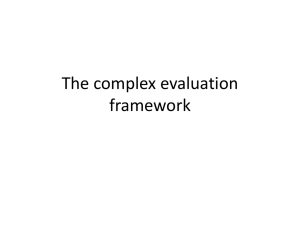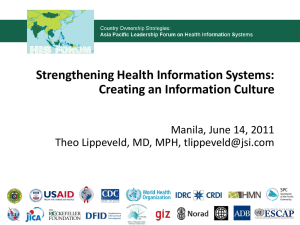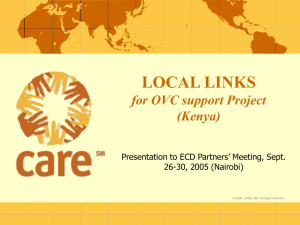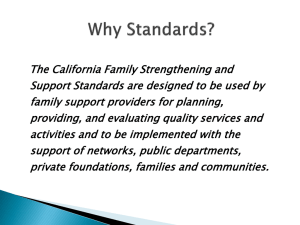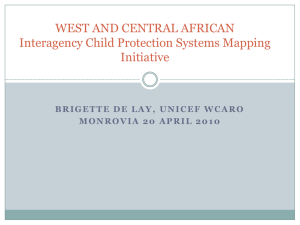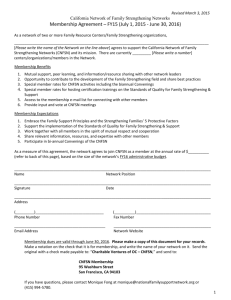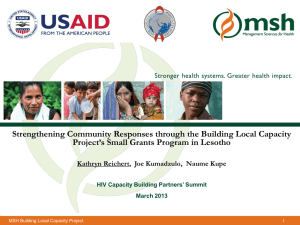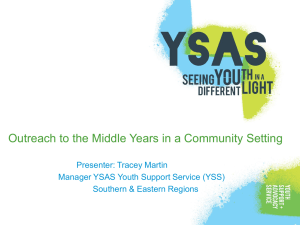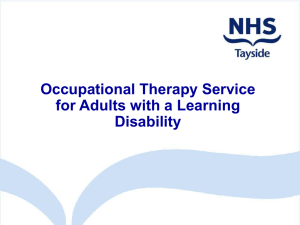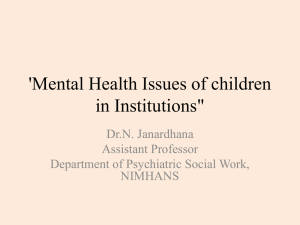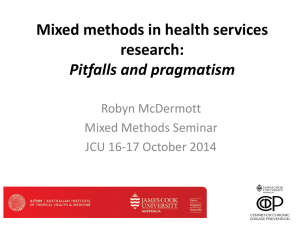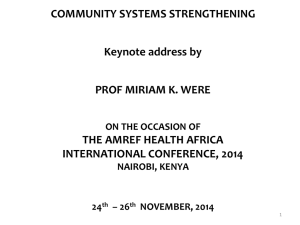(UGM) End-of-Project Partner Evaluation
advertisement
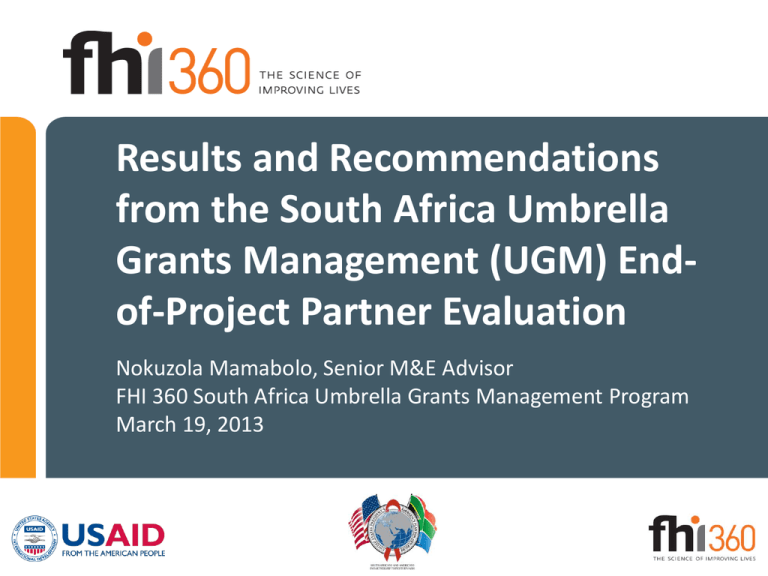
Results and Recommendations from the South Africa Umbrella Grants Management (UGM) Endof-Project Partner Evaluation Nokuzola Mamabolo, Senior M&E Advisor FHI 360 South Africa Umbrella Grants Management Program March 19, 2013 UGM Project Background • USAID-funded; Oct. 2007 – Nov. 2013 • Customized capacity strengthening support to 14 partners, over life of project, focused on OVC and HIV prevention in South Africa • Core technical areas: grants and financial management, organisational capacity strengthening, and monitoring, evaluation and reporting (MER) End-of-Project Evaluations • 7 partners’ programs evaluated (6 OVC, 1 GBV) to assess: — Extent to which target population needs were met — Most significant changes for beneficiaries — Key enablers and barriers • Methodologies: desk review, FGD, in-depth interviews, most significant change End-of-Project Evaluations – learning and benefits • Evaluation process became a capacity building exercise • Strengthened basis for partners to review and refine program logic and design • Highlighted importance of planning with evaluation in mind • Promoted evaluation culture among partners Outcomes – Individual Level – essentially about people and social systems • Three outcomes identified as significant changes for OVC: – Improved psychosocial well-being – Improved school performance – Improved food security • For GBV survivors, outcomes were system improvements at police station, courts, hospitals, and the community Outcomes – Household and Community Level – essentially about the environment • Household-level changes: interventions were seen as valuable where implemented, but it was recommended that these interventions be significantly strengthened. • Community-level changes: – Increased community awareness – Strengthening of community-based forums – Increased capacity of CBOs Recommendations and Lessons Learned • Formally determine what kind of results count as outcomes at design stage • Plan for collection of baseline data for comparative purposes • Emphasize sustainability in program design and implementation • Include household- level interventions Recommendations and Lessons Learned • Support partners in developing relationships with government and community stakeholders • Determine priority - capacity strengthening or service provision? • Measurement of Prevention interventions would strengthen learning for further design and programming
